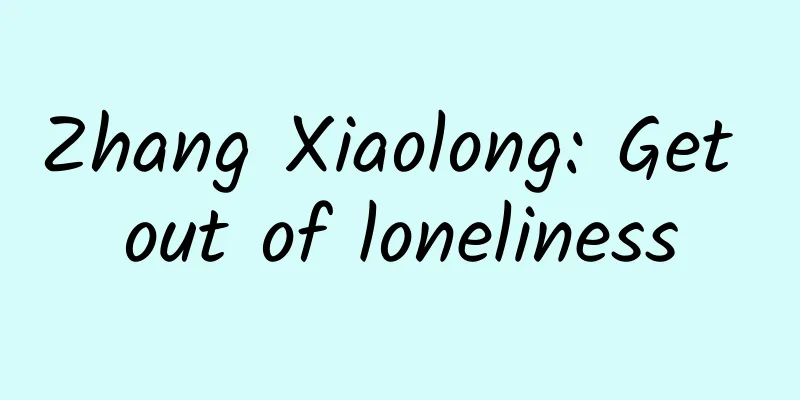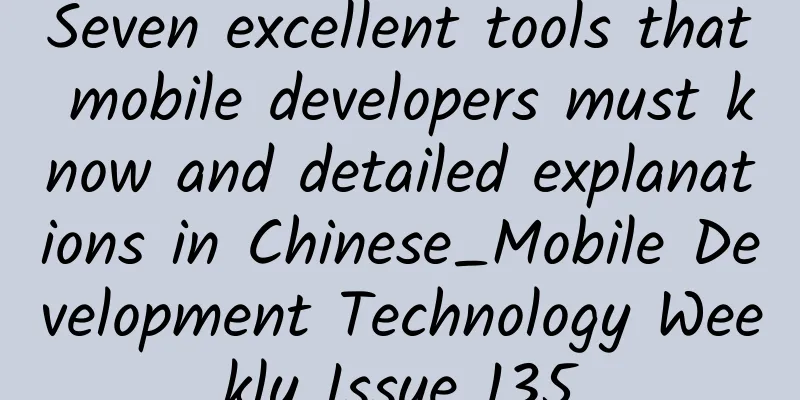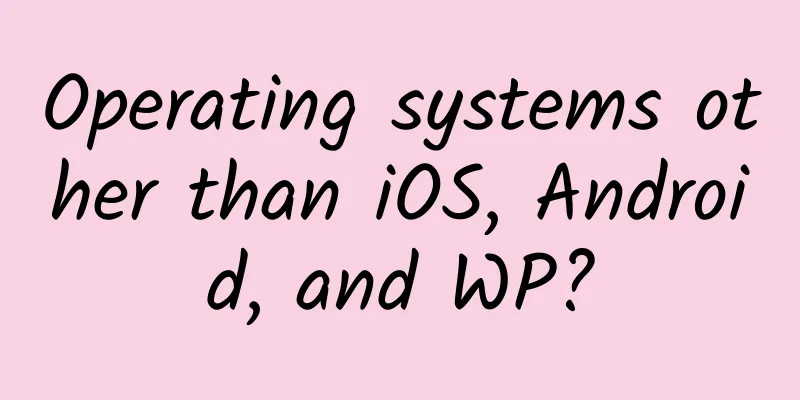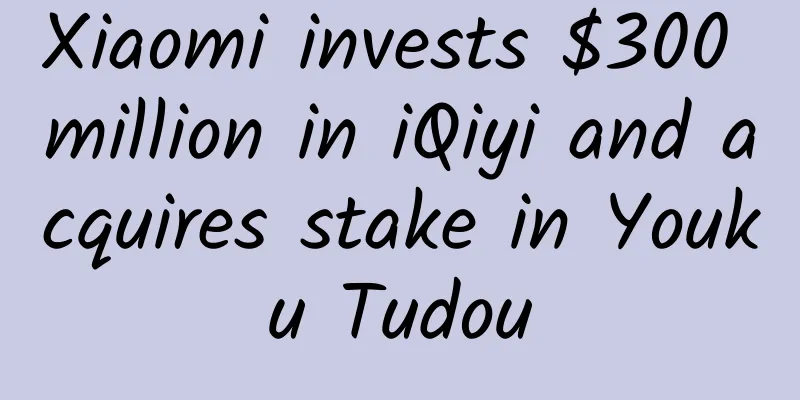Zhang Xiaolong: Get out of loneliness

|
Today, as the commercial value of WeChat explodes, Zhang Xiaolong chooses to step out of loneliness. He walks to the forefront of business and embarks on the path that Ma Huateng has taken. Everyone loves Zhang Xiaolong. As the creator of WeChat, the commercial value he has created with this product (WeChat's latest valuation is $64 billion) is no less than any business leader. More importantly, compared with the latter, Zhang Xiaolong's image is much simpler. This middle-aged man with dark skin, who loves playing golf and drives an Audi sedan, plays the role of an artist most of the time. He regards the products as his own works of art. During these 17 years, Zhang Xiaolong has also been continuously iterating and upgrading himself. Foxmail, which was sold for 12 million RMB many years ago, was more of a commercial failure than a product success. Compared with this little money, what is more regrettable is the huge business opportunity he missed. This is Zhang Xiaolong 1.0, with the keywords being product and technology. In the early days of WeChat, he upgraded the tool to a platform, turning the simple needs of serving users into guiding their emotions, completing the second upgrade. Zhang Xiaolong is now at the crossroads of version 2.0 to 3.0. Only by completing the third level of business can he truly dominate his own destiny and that of WeChat. Lonely Artist Loneliness is the nature and destiny of all artists. They are only good at communicating with the world and users through their works. In the fall of 1998, Zhou Hongyi met Zhang Xiaolong for the first time in Guangzhou through an introduction. He saw this programmer, who was already well-known in the industry, huddled in a small, shabby office with a dozen other people, surrounded by smoke. After seeing Zhou Hongyi, Zhang Xiaolong put out the cigarette in his hand and walked towards him expressionlessly. Foxmail developed by Zhang Xiaolong already has 2 million users, making it the largest shared software in China. At that time, Zhou Hongyi was only a deputy director of Founder Software R&D Center. Later, when he occasionally went to Guangzhou, he would buy pirated discs with Zhang Xiaolong. Zhou Hongyi told Caijing that they were led by vendors through winding streets and alleys, and finally arrived at a small dark room filled with Hong Kong and Taiwan movie DVDs. Zhang Xiaolong, who had lived in Guangzhou for five years at the time, could not speak Cantonese or bargain, and was always treated like a "water fish". Zhou Hongyi liked to watch action movies, and Zhang Xiaolong watched everything, but he always forgot what he had watched and bought. The next time he bought a DVD, you would find that he bought the same one as last time. Zhang Xiaolong left many people with the impression of an excellent but down-and-out technician, cheerful on the outside but conservative on the inside. Zhou Hongyi said that Foxmail did not have a business model back then, and he often criticized Zhang Xiaolong for this, saying that it should add advertisements and make profits. Zhang Xiaolong asked why it had to be like this? As long as there are users and feelings, it's fine. Every argument ended with a long silence by Zhang Xiaolong. "How could such a person create WeChat?" Zhou Hongyi was puzzled. When Foxmail was at its peak, Tencent had only 100,000 users, and most people believed that email was a bigger field than social networking. While Ma Huateng and Zhang Chaoyang were happily looking for venture capital to enter the business, Zhang Xiaolong often read user emails alone late at night. He kept his hands on the keyboard, pressing the down arrow, watching the letters flow by in front of him, and each letter stayed in his eyes for no more than 1 second. In Zhang Xiaolong's eyes, Foxmail had become a big burden. Every day, countless people urged him to move forward, but the huge popularity and number of users did not bring him any economic or social benefits. A year later, Zhang Xiaolong chose to sell Foxmail to Broadcom, a little-known Internet company. The night after the announcement, he wrote a letter full of sentimentality, in which he likened Foxmail to a work of art that he had carefully sculpted. "From the soul to the appearance, I can count every detail and every allusion. In my heart, it has a soul, because every piece of its code has the consciousness I had when I shaped it at that moment. I suddenly had an urge to regret it." Artist Zhang Xiaolong has always been a lonely creator. He used to be on a smooth track until obstacles appeared in this broad track - business and profit. Countless shared software such as Maxthon, Qianqian Jingting, and Super Rabbit were knocked away, but Zhang Xiaolong luckily entered another track. He was just over 31 years old that year, but many people thought that his personal legend seemed to have ended there. That summer, Baidu went public on the NASDAQ, and everyone thought they were dazzled - Baidu's stock price soared from the issue price of $27 to $122.54, a 354% increase that day, and people saw the power of capital and business. Zhang Xiaolong bought a car with the acquisition money given to him by Broad Group and went to Tibet, where he had always wanted to go. "How can I put it? This person is too naive," Zhou Hongyi said. This entrepreneur, who is known in the business world for his cunning and aggressiveness, commented on Zhang Xiaolong, who is one year older than him. After missing the first wave of the Internet's impact on NASDAQ, Broadcom went into decline. In 2005, Zhang Xiaolong and Foxmail were sold to Tencent. Zhang Xiaolong took over QQ Mail at Tencent and led QQ Mail to surpass NetEase Mail to become China's largest email service provider, but this was just him proving his product capabilities once again. In many eras, the powerful are businessmen, and most artists cannot escape the fate of being supported by businessmen and unable to make their own decisions. Foxmail brought Zhang Xiaolong great fame and a life of wandering. Zhang Xiaolong has always been surrounded by businessmen. He made friends with businessmen and even wanted to go to Microsoft to learn how to run a business, but in the end he did not take a step in business. In the end, most of his friends who had both product and business talents became successful, including Lei Jun, Zhou Hongyi, Ma Huateng, and even the reporter Li Xueling who interviewed him that year. Some people commented that Zhang Xiaolong has always been a trend follower, but he is not in the trend. From a programmer to a product manager, he learned to control his own products, but he could never control the users. However, the generous fate gave him a third chance, and this time the success came too big and too fast. "This is a miracle!" Zeng Ming, product director of WeChat, commented on the success of WeChat today. Zeng Ming is one of the 13 founding team members of WeChat. He said that at that time, no one, including Zhang Xiaolong, knew what to make of WeChat, not to mention that half of the members were interns with no experience. Their initial goal was to be fast and stable - this was exactly the same idea as Zhang Xiaolong's idea when he was making Foxmail, a simple idea of making tools. If Zhang Xiaolong's product concept only stopped here, then what he would produce would at best be just a decent chat tool. Zeng Ming said that it is hard for outsiders to imagine that WeChat has never faced external competition, but has always faced internal competition. Hong Bo recalled to Caijing reporters that when he met Zhang Xiaolong in the early days of WeChat, he was always thinking about how to learn and surpass QQ, even though everyone believed that WeChat's biggest rival at the time was MiTalk. Zhang Xiaolong was not confident, because at that stage he kept repeating this question to almost everyone he met. Hongbo asked him, what is the relationship between WeChat and openness? He replied, it has nothing to do with it. Hongbo asked again, what if there is a conflict with the internal? Zhang Xiaolong said, I have never thought about it. Everyone likes Zhang Xiaolong, he looks simple and unsophisticated, focused and unfathomable. But most people feel a little uncomfortable with him, because one thing is certain: his obsession with products is beyond imagination. Around 2010, there were two other teams in Tencent that were also developing WeChat-like products, but they were afraid that it would damage the interests of operators. Under pressure, these projects were suspended, but Zhang Xiaolong continued to move forward regardless. Businessmen or professional managers often choose to do what is most beneficial to themselves, while artists are only willing to do what they think is right and do not know how to compromise. This persistence has helped WeChat win users and win the battle among the three princes for the throne. Winning Tencent's internal victory has largely meant that he has won the victory of the mobile Internet. Zeng Ming described Zhang Xiaolong's thinking. Late at night, everyone was discussing how far public accounts could go and whether they could be made into online stores like Taobao. Zhang Xiaolong denied it and said, "This is not right" - this is his catchphrase. Then he lit a cigarette and didn't speak for a minute or two. Finally, he said, we should use standardized interfaces to connect all companies and items to WeChat - this is the origin of WeChat connecting everything. Zeng Ming said that this idea was so great that everyone present was only willing to respond in a slightly bland tone, saying, "Yes, this direction is good." Zeng Ming said that Zhang Xiaolong has no methodology and has never rationally said 1234. When he puts forward a point of view, you may think it is right at the time, but it is later confirmed that it is really right. An internal employee of Tencent said that when Zhang Xiaolong proposed WeChat as a lifestyle in 2012, everyone laughed and thought he was possessed by Jack Ma. Before making a decision during the QQ Mail era, Zhang Xiaolong would question himself, wondering if there was something wrong with this way of doing things. "But now, every time he makes a decision, all his aura is telling you - yes, just do it this way, this thing will definitely succeed." Zeng Ming said that this confidence is not because Zhang Xiaolong's position and reputation have risen, but because everything he thinks about has been proven to be correct. Just as great wealth can change a person, a huge number of users can also change a product manager. In the Foxmail era, users were Zhang Xiaolong’s biggest burden. He didn’t dare to charge them. In order to escape from users, he even wanted to go to the United States. Through WeChat, starting with the “Shake” function, he began to try to dominate users, set rules, and let users be happy, angry, sad, and happy according to his rules. His product is no longer just a tool, but an entire society and a whole world, a place that can meet all the users' social, emotional, and self-realization needs. A reporter who has met Zhang Xiaolong many times commented that he prefers to live in a world that he can control, and is not interested in things that he cannot control. The more things he can control now, the stronger and more confident he becomes. He walks around the office in shorts, making sure that every line of code and every product detail developed by the team is infused with his emotions. Although he still tells all kinds of dirty jokes in private and at the dinner table, in some ways, he is becoming more silent. In July 2012, Zhang Xiaolong gave an 8-hour and 20-minute presentation at Tencent. The presentation was a 178-page PowerPoint. He kept talking without giving anyone a chance to ask questions or interrupt him. He talked about philosophy and art, sex and violence, and his understanding of human nature. He said that making products is to make users happy, just like God. In January of the following year, the number of WeChat users exceeded 300 million. The speech clips were circulated by countless people on the Internet and became a product bible on the mobile Internet that is as important as Lei Jun's quotations. So far, Zhang Xiaolong has completed his journey to become the "product godfather" either actively or passively. Inside WeChat, employees regard him as a spiritual leader. Kink is the design director of WeChat. He told Caixin that all his ideas and evaluation criteria come from working with Zhang Xiaolong. Although Zhang Xiaolong never says what his criteria are, he will tell you his views and evaluations on things, and tell you what you should insist on doing to be valuable to users. They need to feel this standard and convey it to their employees. Zhang Xiaolong has built a team with a method that does not involve management. They are the proudest group of people in China's Internet industry today. They share the same values and a complete Zhang Xiaolong way of thinking - to be simple, low-key and always focus on the things themselves; they believe that they never make mistakes in direction and only argue about product details; they claim that they know nothing about other giants and only have a half-understanding of Tencent; and what they are doing is undoubtedly changing the world - this easily reminds people of the heyday of Baidu a few years ago. All product developers will say they want to pursue perfection, so why do so few people do it? "Because many people compromise before reaching perfection," said Wu Yi, general manager of WeChat Pay. "That's because they don't have Zhang Xiaolong," Zeng Ming laughed. When WeChat was upgraded to an independent business group in July 2014 and rapidly expanded from dozens of people to 1,000 people, what Zhang Xiaolong and WeChat executives discussed most was how to build a pure WeChat team. Zeng Ming said that when Zhang Xiaolong saw a stupid plan, he would look at himself and say, "Lake, you should read more books." When Zeng Ming saw a stupid plan, he would ask his subordinates, "Are you sure that this process will make you happy? Won't you confuse yourself?" They even used the word "elegant" to describe what they were doing. "We need to make products elegantly - not complicated, redundant, and not consuming more resources." Kink said that WeChat is different from other teams. WeChat is polite, rational, and neutral, in terms of functions and product features, as well as the attitude towards internal and external communication. Occasionally, they would like to give the entire product an attitude and emotion in another hidden and sultry way. Many people remember the startup screen of WeChat 3.0 - against a black background, red neon lights formed a silhouette of Michael Jackson. Why not use traditional black and white? Because it is to express the inner passion and enthusiasm. Kink said that they had been looking for this feeling for a long time. Until one night, Zhang Xiaolong threw him a key to an Audi TT and said, "Go to my car, I have found this feeling." The garage was dark at the time, the car started, the music sounded, and the whole field of vision was dark. Only the car's information window and the place where the lights were shining emitted a red halo. "If you don't listen to MJ in a sports car, if you don't drive 120 or 130 miles on the highway, you can't feel that state." Kink said. “This is how a loser designer feels when he drives a sports car for the first time,” Zeng Ming added. Connecting everything, including business In the era of mobile Internet, people attach unprecedented importance to technology and products, and the channels for monetization have become extremely smooth. In this highly commercialized world, everyone is either actively or forced to move forward. Artists can choose to let businessmen stand behind them and control the fate of their products for them, or they can choose to learn to think like businessmen. Wu Yi, the current deputy general manager of WeChat Pay's joint product department, likened Zhang Xiaolong to a director who wanted to make a perfect blockbuster. It's not that he can't accept advertising placement, but he can't tolerate abrupt placement, because abruptness will destroy perfection. Wu Yi was once the assistant general manager of Tenpay. He described that when he first met Zhang Xiaolong three years ago, Zhang was thinking about how to connect WeChat and business through payment. "He doesn't reject perfect cooperation, such as QQ Music, QQ Mail, and payment." In the early days of WeChat, Zhang Xiaolong was responsible for the product, while Dai Zhikang, vice president of Tencent's e-commerce, was responsible for commercial rules such as how to connect to third-party merchants and how to expand from online to offline. Even payment was handed over to the Tenpay team. Remember the story of Foxmail? Zhang Xiaolong once lost his artwork, so he is extremely sensitive to danger. At the end of 2012, Luo Yihang, the founder of Pingwest, wrote that the crux of WeChat's slow commercialization lies in the internal differences between Zhang and Dai. The subsequent departure of Dai Zhikang, the separation of WeChat Pay from Tenpay and its integration into WeChat, and the independence of the WeChat Business Group in July this year, may be seen as a series of events that Zhang Xiaolong has made a choice: since WeChat commercialization is inevitable, the WeChat team will lead the commercialization. This also means that Tencent's senior management, represented by Ma Huateng and Liu Chih-ping, has made a choice to hand over the commercialization to Zhang Xiaolong and give him full authority. Internally, he took control of commercialization. Externally, he tried to establish a whole new system to handle the relationship between art and business. For example, there were 120 projects in Tencent waiting to be connected to WeChat, and WeChat required running data for one and a half months first, and then screening according to the data. "WeChat has incorporated commercial activities such as what functions to enable and what partners to connect with into the product, and for most people, the product is part of the business." A senior Tencent insider told reporters that you can understand this as commercial values and the artist's methodology. Zeng Ming said that their principle is to allow commercialization to arise from product innovation without increasing the complexity of WeChat, rather than being divided into a collection of interests by business. Even today, WeChat's business strategy is considered relatively conservative. An industry insider commented to Caijing that Zhang Xiaolong is going through a process of avoiding, testing, leading, and adapting to commercialization. He never makes promises. He certainly won't say what he can't do, and he won't necessarily say what he can do. The commercialization of WeChat carries the great ideal of Tencent's transformation. At present, it is divided into three major steps: value-added services, e-commerce and O2O. Now it has only completed the first step, while the official account can allow WeChat to achieve the latter two steps at the same time. Zeng Ming said that in the future WeChat will open more entrances and provide the traffic entrances that all businesses expect. Critics once thought that WeChat was just a tool for diverting traffic, but now WeChat, with the help of public accounts, connects Tencent's powerful online marketing capabilities with offline businesses, building a huge online + offline ecosystem, in which various small ecosystems such as e-commerce, O2O, and health will be born. To some extent, the difference between WeChat and QQ is like the real economy versus the virtual economy, and the latter is less than 7% of the former. In the past, Zhang Xiaolong used to stand behind businessmen, but now he is at the forefront and has taken the path that Ma Huateng has taken - being a leader in both products and business. However, the interests of business are significant and complex, so it is conceivable that Zhang Xiaolong will choose to remain silent for a long time. Zhang Xiaolong's college roommate once recalled that they always went to the pond outside the dormitory to fish for shrimps late at night. Today, his way of dealing with complex events is still the same - playing golf alone, but his way of relieving troubles is becoming more and more advanced. A person close to Zhang Xiaolong told Caijing that Zhang Xiaolong, now a senior vice president of Tencent, had to go to Shenzhen every week to attend a regular meeting. He always used the excuse of "not being able to get up" to avoid going. Ma Huateng said, "Let my secretary wake you up in the future." Later, Zhang Xiaolong said, "The road is too congested, I'm afraid I can't make it." So Ma Huateng sent a car to pick up Zhang Xiaolong every week until he could no longer find any excuses. Zhang Xiaolong reluctantly and half-heartedly left his world. |
<<: Looking back at Tencent over the years
>>: Jack Ma: “WeChat has played a good hand badly”
Recommend
How do Weibo operators increase followers through lucky draws? Follow these 6 steps!
"Give me a fulcrum and I can move the earth....
Tencent Advertising Strategy for Weight Loss Industry
This article focuses on six sections: "Link ...
Three major concerns: where is Samsung's future?
[[143280]] Samsung Electronics announced its seco...
Is it expensive to produce a Hangzhou specialty mini program? Hangzhou specialty applet production cost and process
How much does it cost to create a Hangzhou specia...
When will Shanghai be closed in 2022? Will it be closed until May 1st? Attached is the latest official news
Shanghai has been under lockdown since the end of ...
2014 Global Mobile Game Industry White Paper
Fast-growing global mobile gaming market In 2014,...
Overview of Mobile APP Network Optimization Processing
Generally, when developing an APP, you will direc...
The information flow master with 5 years of experience will teach you new ideas for wedding photography advertising!
A master with 5 years of experience in informatio...
The most comprehensive encyclopedia of basic knowledge on points wall. How to make a points wall?
The most comprehensive encyclopedia of basic know...
How to make product design more youthful? I summarized these 5 points
The target users of our products are relatively y...
Tips for selecting products without source for Douyin store!
Product selection is a common topic. Regardless o...
How to run a marketing campaign with high conversion rate
This article summarizes my experience and feeling...
How can old brands be revived on Xiaohongshu?
In the past three years, we have witnessed countl...
What should we pay attention to when developing the Guiyang Mall mini program? What are the things to pay attention to when developing a shopping mall mini program?
What should we pay attention to when developing t...
The entrance is here, where are the good H5 games?
[[145325]] With the development of mobile games, ...




![[Daiyu Finance] Pantaoyuan Swallow Returns Combat Method Swallow Combat Method Second Move Turns Around](/upload/images/67cbff0e8e21c.webp)




